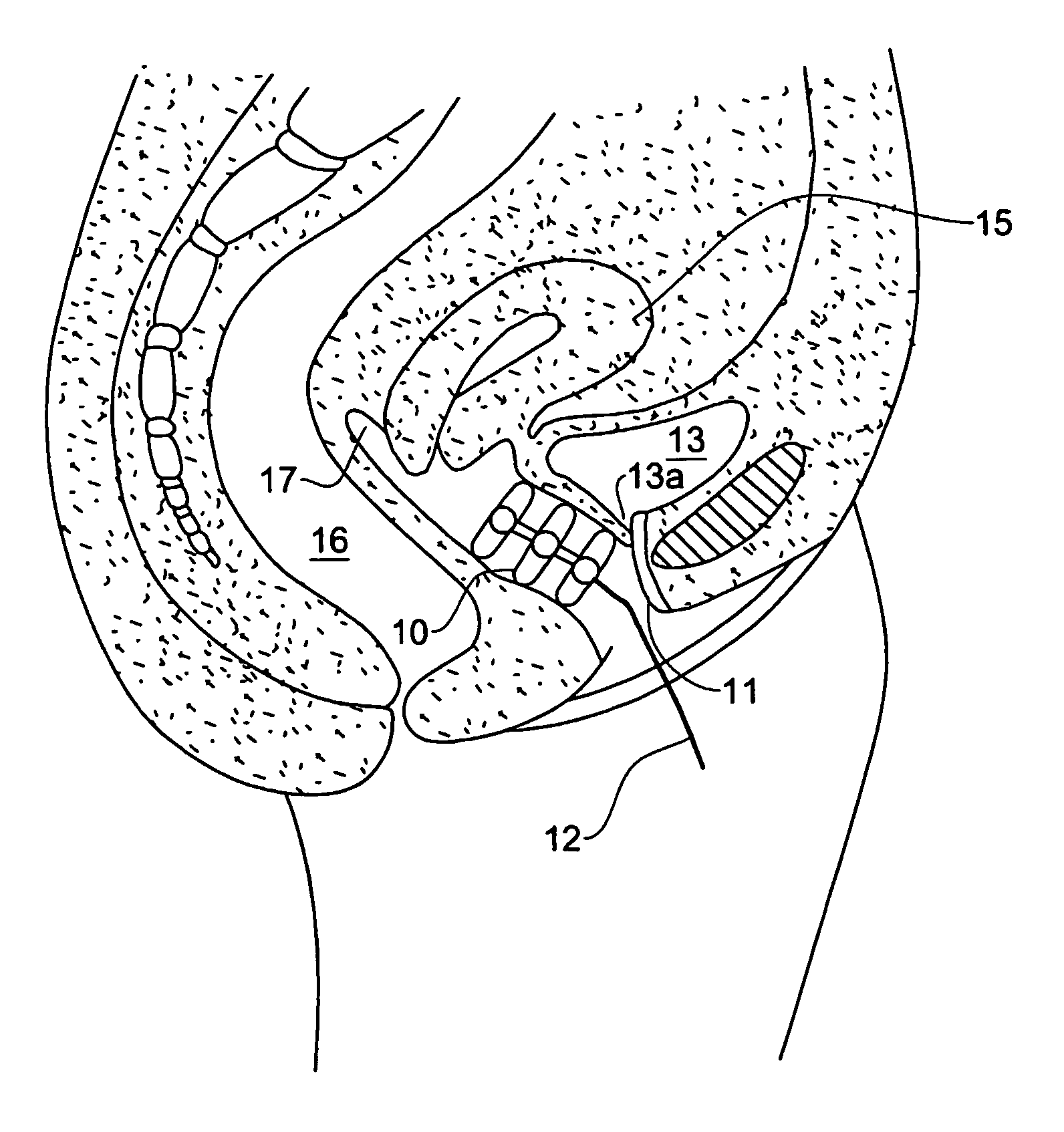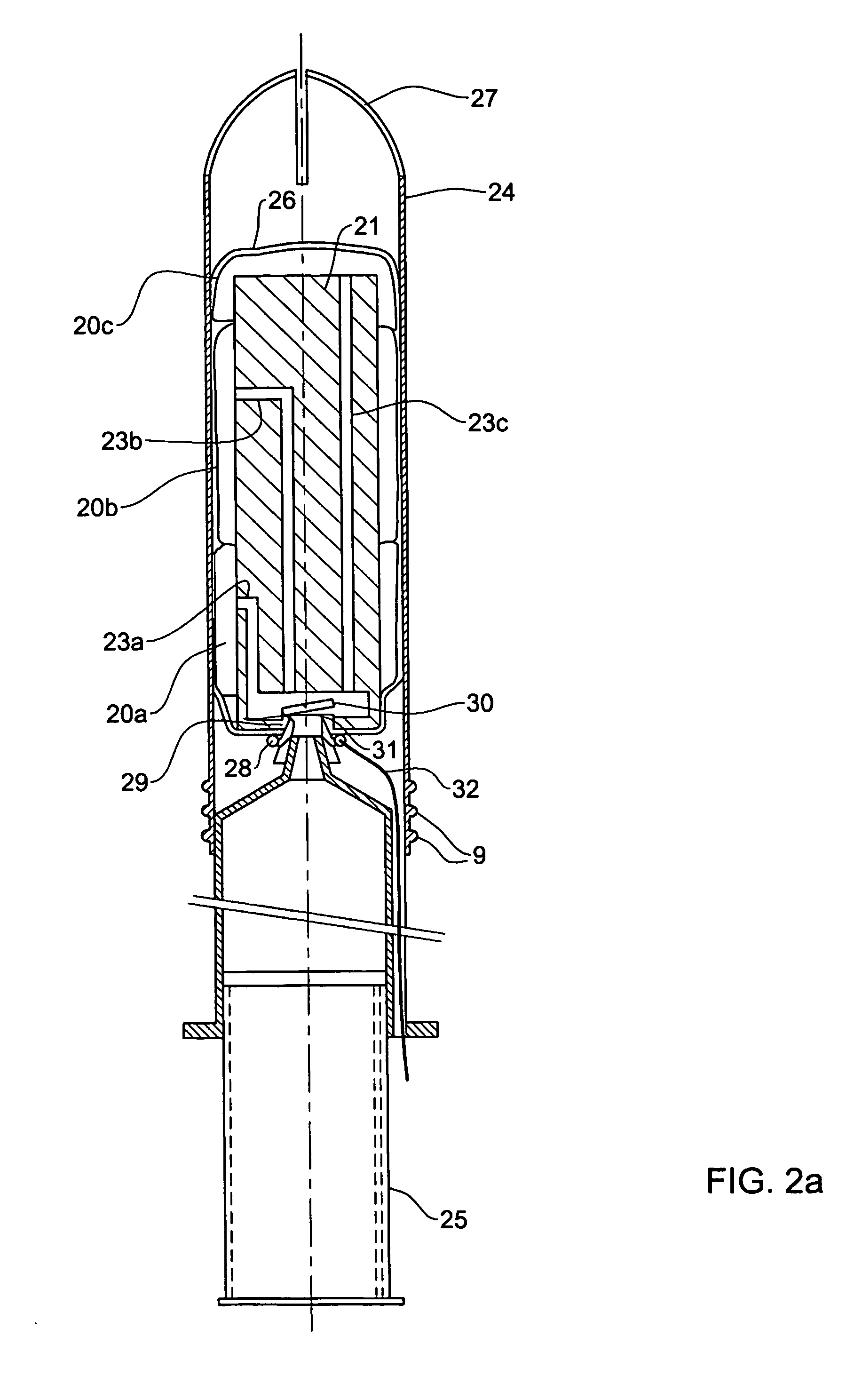Device For The Prevention Of Urinary Incontinence In Females
a technology for urinary incontinence and female patients, applied in medical science, packaging, diagnostics, etc., can solve problems such as hypermobility, and achieve the effect of stabilizing the positioning of the devi
- Summary
- Abstract
- Description
- Claims
- Application Information
AI Technical Summary
Benefits of technology
Problems solved by technology
Method used
Image
Examples
example 1
Elimination of Involuntary Urination by Use of the Device of the Invention
[0075] 9 women suffering from involuntary urination were chosen for the purpose of the experiment. Prior to the use of the device of the invention, the women chosen underwent a “pad test”, wherein a dry pad was placed in their panties for a period of 60 minutes, and during that time, all 9 women performed identical and predefined physical activity. At the end of 60 minutes, the pad was weighted and the addition of weight due to moisture (including vaginal discharges, sweat and urination) was noted. The day after, the same experiment (i.e. weight of a pad before and after 60 minutes of predefined physical exercise) was conducted again, but at this stage with the device of the invention as specified in FIGS. 5 and 6 inserted into the vagina of the women. The results are shown in FIG. 14 for the difference between the weighted pad after one hour of physical exercise, and in FIG. 15 for the same results after def...
example 2
Comparative Study on Three Different Devices of the Invention
[0077] A total of 30 patients were screened and entered to the study, 10 on each study group. One patient from group II was excluded (Dropout) after reporting on inconvenience and dissatisfaction in using the device of the invention.
[0078] The final study population included 29 women divided into 3 study groups; each used a different type of device of the invention. In all 3 groups the women used the device and in the control period they weren't using any device.
[0079] The pads were weighted after 1-hour stress period (one hour pad test) and again at 6 hours, after another 5 hours of daily routine. The difference in the measured weights between the device period and the control period was calculated and presented as an absolute change and as a relative change (%) from the DEVICE period. The differences are presented for each study group and for each time point. The results show lower measured weight in the device wearin...
PUM
 Login to View More
Login to View More Abstract
Description
Claims
Application Information
 Login to View More
Login to View More - R&D
- Intellectual Property
- Life Sciences
- Materials
- Tech Scout
- Unparalleled Data Quality
- Higher Quality Content
- 60% Fewer Hallucinations
Browse by: Latest US Patents, China's latest patents, Technical Efficacy Thesaurus, Application Domain, Technology Topic, Popular Technical Reports.
© 2025 PatSnap. All rights reserved.Legal|Privacy policy|Modern Slavery Act Transparency Statement|Sitemap|About US| Contact US: help@patsnap.com



